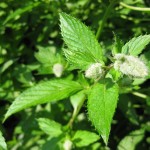Peppermint Tea Benefits and Side Effects
Contents
For centuries, peppermint tea has been enjoyed for its refreshing flavour as well as used medicinally. It has traditionally been recommended by herbalists and other natural therapists for relief from a variety of disorders. More recently, peppermint tea has been explored by scientific researchers, who are increasingly verifying the evidence of history and recognising the health benefits of peppermint tea. What are these benefits?

The Evidence of History
Before scientific methodology was established, the efficacy of plant based medicines was established by word of mouth. Peppermint tea was a popular “folk medicine” simply because it was reported to work so quickly and effectively in relieving a variety of disorders, including:
- Headaches
- Sinus problems
- Stomach upsets
- Menstrual cramps
Just the aroma of peppermint tea can help relieve the symptoms of colds or headaches, which is one reason why it is a popular ingredient in aromatherapy. In addition, when applied topically, peppermint, peppermint infusions and peppermint oil have traditionally been used to treat conditions such as skin disorders and arthritis.
In the past, those who used peppermint tea and oil for its health benefits were less interested in how or why it worked than in the fact that it did seem to work. More recently, those questions have been asked and many of them answered. It has been discovered that the active ingredient in peppermint, menthol, has an anti-spasmodic effect. This explains why it relieves stomach upsets so quickly. The fact that it is a muscle relaxant may explain why it has been found to help relieve stress. Significantly for sufferers of Irritable Bowel Syndrome (IBS), a little known and difficult to treat disorder, peppermint oil, when clinically administered, has shown a great deal of promise in relieving this condition and it is believed that regularly drinking peppermint tea may help relieve the symptoms of IBS.
Other Health Benefits of Peppermint Tea
Peppermint contains properties that give it a number of other potential health benefits. It is known to have antibacterial, antimicrobial and antiseptic properties, so can be effectively used as a cleansing agent on the skin and to help fight bacterial infections. It is also known to have decongestant properties, so can be a potentially effective treatment for a number of respiratory disorders. A known analgesic, peppermint can help with pain relief.
Peppermint tea may also be an ideal study aid for students and help commuters drive more safely. In one study, just the aroma of peppermint tea was shown to help students remain alert and focused when studying. In another study, peppermint tea helped drivers stay alert and relaxed in traffic.
Peppermint Tea Side Effects
Few side effects of peppermint tea have been noted, though health care professionals caution against its use by those who suffer from gastric problems related to excess stomach acid, such as acid reflux and ulcers. In general, though, peppermint tea is healthful, healing and relaxing, so sit back, relax, inhale its healthful aroma and enjoy the refreshing taste of peppermint tea.
Read more: http://www.naturaltherapypages.com.au/article/the_health_benefits_of_peppermint_tea#ixzz2zVwhb0Si




i am looking for spearmint tea – the homeopathic stores dont seem to have it – i live in cape town – any ideas?